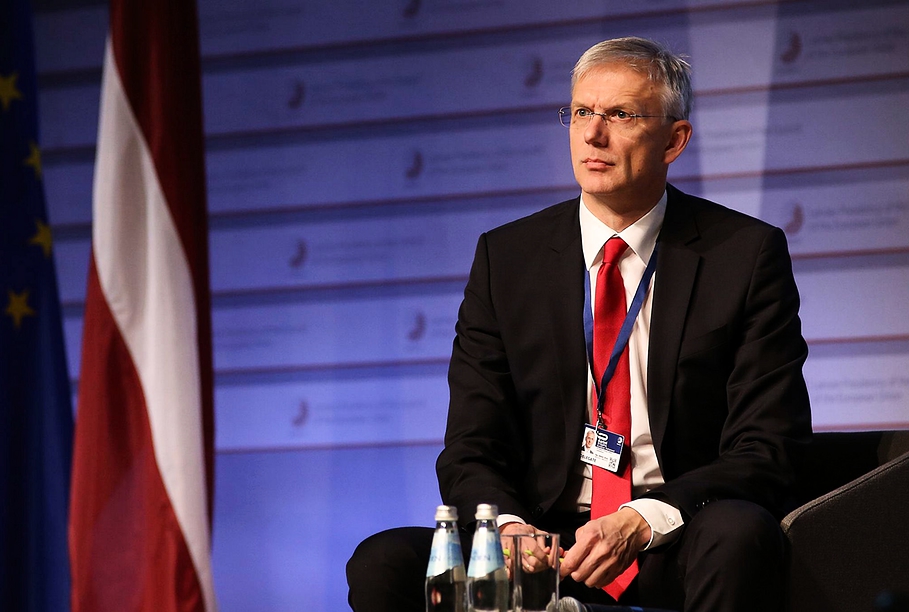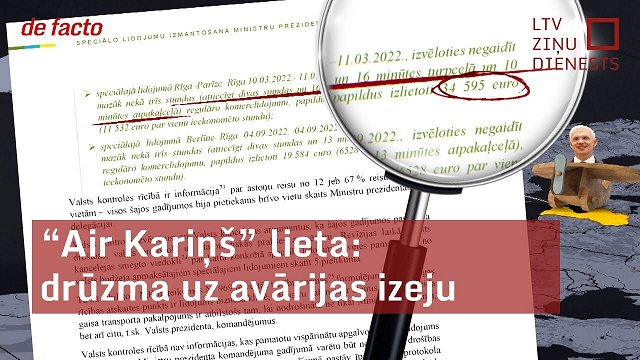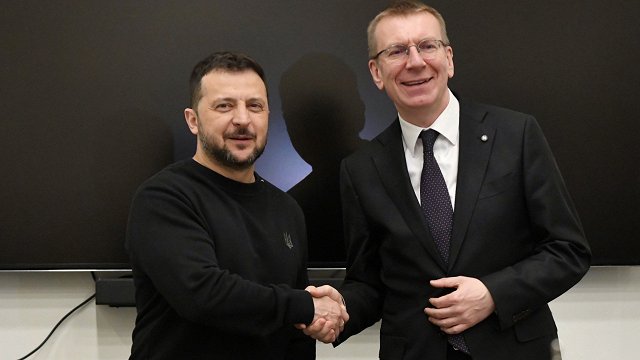Pabriks cited the European Council’s 1987 resolution on the situation of the Baltic peoples, which condemned the forced migrations perpetrated by the Soviet Union as having “brought the Baltic peoples under pressure to assimilate and that the lack of possibilities for education and cultural expression of their own is leading towards the loss of their identity.”
It’s not just the problem of non-citizens, the MEP explained. “Those who came here during those times – they’re still migrants in the first or second generation. And Latvia at this moment must still defend its interests,” he said.
He confirmed that members of the European People’s Party (EPP) group were gathering in Milan in a parallel meeting to prepare a document outlining proposals for fair and reasonable burden-sharing among member states. The EP hopes in May to release a special report and recommendations for consideration by the Council of Europe and member states.
LSM spoke by phone to MEP Krišjānis Kariņš, who had just arrived in Milan Wednesday night for the EPP group meeting on the issue. He confirmed that EPP group MEPs from Latvia and Estonia had worked together on a number of proposals that they hope will find support even among other political groups like the Socialists, who have also spoken out on the need for a burden-sharing regime to help the southern frontline states ease their exposure to this increasingly out-of-control humanitarian crisis.

Here are his reponses to LSM on the eve of the extraordinary summits.
“This is the reason I’ve arrived in Milan where the EPP group is holding a bureau meeting where we are working on our petition regarding immigration and the situation which is now coming to a head in the south of Europe from the north of Africa.
"This is a summit where we are formulating our group’s political position which would be across all delegations from all the member states.
"One of the issues being discussed is how the existing migrants who have arrived in Europe could be in some fair way distributed across Europe so that it would not be Italy and Malta alone who are dealing with this issue. And regarding the proposal to set up a quota system, the EPP is talking about two criteria – one would be the size of the country, including population of course, and the second would be the economic situation of the GDP.
And what we want to introduce would be a third criterion, and that would be the percentage of existing immigrants already in the country. Because the more immigrants one already has, the more difficult it is to integrate any additional migrants.
"During the fifty years under the Soviets our country experienced a massive wave of immigration which at its peak topped 40%. Since regaining independence the situation has been such that a small percentage has left the country, a larger percentage has integrated, but we’re still in the process of integrating those arrivals, who for fifty years were living in the territory of Latvia but with the understanding that it was part of a vast Russian, then called the Soviet, empire. That readjustment, especially for those who are a little older has turned out to be extremely difficult. For the young it’s easier but it’s an ongoing process.
So for our country to accept any sizable number of new immigrants, whether they came from the north of Africa or from anywhere else in the world would simply compound the existing difficulties that we already have.
"I simply think that this aspect should be taken into account when assessing what would be a fair and reasonable proportion that could or would be distributed throughout Europe. So there are some countries which, of course are better poised and some which have a much more difficult time.
"Of course the relative wealth, or lack of wealth in our country is also perhaps a big inhibitor. But it’s part of the general discussion of how Europe as a whole should tackle this. I think that this is going to cause consternation across many member states, especially when we observe the rise of the so-called extreme right, where the extremist parties often have a basic platform of anti-immigration, including European migration, let alone third-country migration.
I think it’s quite obvious that we already see that we have a relatively low number of asylum seekers prior to this latest crisis. And I think the reason is purely one of economics – our country is not one of the wealthiest, it’s still one of the least wealthy in Europe in terms of GDP. That means that the amount of support in the social services are less generous than in other countries for our own citizens and anyone else who were to come.
"Which means that perhaps people, once they will have arrived in Latvia, would be motivated to migrate further within the Schengen Zone to some more wealthy country, for example Sweden or Germany. Which, by the way, has been happening ever since our joining the European Union by our own citizens.”































